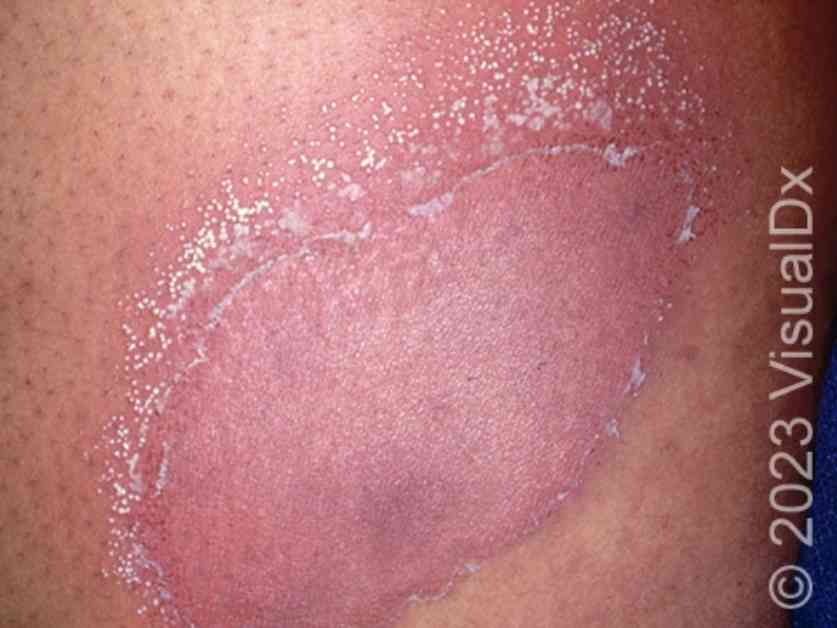Generalized Pustular Psoriasis (GPP) is a skin condition that can affect individuals of any age, but it is most commonly seen in middle-aged adults, with a higher prevalence in women. The condition is characterized by the presence of numerous pustules covering large areas of the skin, such as the trunk, arms, and legs. These pustules may merge to form larger collections referred to as “lakes of pus.” In addition, red patches of skin may accompany the pustules, and these patches may be more visible around the edges of the redness. It is important to note that individuals with darker skin tones may have patches that appear purple, gray, or dark brown. GPP can also affect the lining of the mouth.
It is crucial to differentiate GPP from other forms of localized pustular psoriasis, such as palmoplantar pustulosis. Individuals with GPP may have a history of plaque psoriasis, characterized by the presence of pustules and plaques covered with silvery scales, especially on the scalp, trunk, buttocks, genitals, elbows, or knees. Furthermore, GPP lesions can become infected and may impact various organs in the body, including the liver, joints, lungs, and kidneys.
Given the severity of GPP, self-care measures are not sufficient for managing the condition. Seeking medical guidance and treatment is essential to prevent potential complications associated with GPP. The National Psoriasis Foundation offers valuable resources for individuals living with psoriasis, including GPP.
Medical professionals may conduct biopsies, skin cultures, and blood tests to diagnose GPP accurately and rule out other similar conditions or infections. Severe cases of GPP may require hospitalization to ensure proper care, hydration, nutrition, temperature regulation, and infection management. Initial treatment may involve the use of topical steroids, fluid replacement, infection screening, blood tests, and pain management medications.
For ongoing care, medical providers may prescribe FDA-approved medications like spesolimab (Spevigo) for GPP flares. Other treatment options include biologic medications, retinoids, immunosuppressants, and phototherapy. It is essential for individuals who are pregnant or breastfeeding to consult with their healthcare provider regarding suitable treatment options for GPP.
If you notice widespread inflamed areas of skin, pus-filled lesions, or changes in skin color, it is crucial to seek urgent medical attention from a dermatologist. Timely intervention can help manage GPP effectively and prevent potential complications.
In conclusion, Generalized Pustular Psoriasis is a challenging skin condition that requires comprehensive medical care and treatment. By understanding the symptoms, treatments, and potential risks associated with GPP, individuals can take proactive steps to manage the condition and improve their quality of life.


















